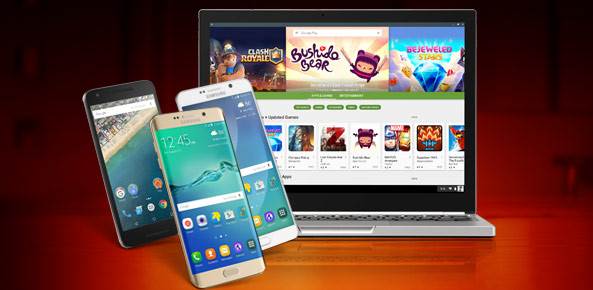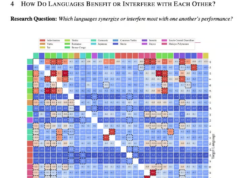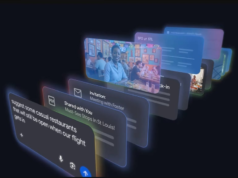Five years after first launching the Chromebook, Google is eyeing new opportunities through bringing Android apps to the device platform. Developers attending Google’s recent I/O developer conference saw an on-stage demonstration of how Android apps will work on the Chrome operating system, and Google recently posted a video of that demonstration online.
The combination of Android and Chrome functionality on one device offers the potential to create new business models for enterprises and developers alike, according to Kan Liu, director of product management for Chrome OS.
The addition of the Google Play Store to Chrome OS will begin rolling out first to developers with version M53 of the operating system, Liu said. Google expects to launch the updated version of Chrome for the general public later this year, he added.
PC Experiences Never Before Possible
“By bringing together the best of Android and Chrome OS, we believe we’re making a great leap forward,” Liu said at I/O 2016. Developers will also see new opportunities open up to create “experiences that have never been possible on a PC platform before,” he said.
Google has long been expected to merge Chrome with its Android operating system, already the leading mobile OS globally. With its coming update, Google will “seamlessly” integrate the Android framework into the Chrome OS so users can use their laptops in the same ways they now use their phones, Liu said.
While the Chrome and Android teams have been working together to create the software that will enable that, Google has been collaborating with its original equipment manufacturing partners to ensure the next generation of Chromebooks features the hardware needed to support Android apps, Liu said.
Sales of the cloud-based Chromebooks, which have been widely adopted in the U.S. education market, passed sales of the Apple Mac for the first time during the first quarter of 2016, according to the analyst firm IDC.
Enterprise Benefits from Android Apps on Chrome
“I think Google’s decision to enable Chromebooks with Android apps is more a natural evolution of the two platforms than it is ‘transformational,'” IDC analyst Bryan Bassett told us today. “While I think that education departments will certainly benefit from having access to Android apps on Chromebooks, I think this move by Google is squarely focused on opening up Chrome OS to more enterprise customers.”
Enterprises that have made the leap to Chromebooks are doing so because of such benefits as affordability, flexibility and manageability, Bassett said. With the new capabilities, they will gain an affordable way to bring mobility to more employees. By gaining access to the Google Play Store through their Chrome devices, users will now also be able to tap into the wide range of business apps they already use on their smartphones, he said.
“It has been proven multiple times, that application ecosystems are a key and often deciding factor to the overall success of mobile operating systems,” Bassett said. “Rich application ecosystems drive developer interest, revenue, and ultimately determine quality of a user’s experience within the platform.”






![[Infographic] Manage Commercial Displays With Ease Across](https://loginby.com/itnews/wp-content/uploads/2026/02/1770220527_Infographic-Manage-Commercial-Displays-With-Ease-Across-100x75.jpg)